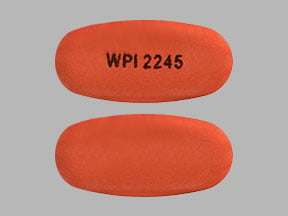
Lialda Coupons & Savings Card – Discount Prices from $71.44
Brand for: Mesalamine
My prescription
Edit
1.2GM, Mesalamine (120 Tablet Delayed Releases)
Select pharmacy

CVS
$71.44
COUPON PRICE
Albertsons
$118.72
COUPON PRICE
Walgreens
$126.72
COUPON PRICE
Walmart
$236.83
COUPON PRICELialda savings card
Show this card to your pharmacist
CVS
$71.44
BIN
ID
PCN
GRP
019876
LH20F63512
CHIPPO
LHX
Powered by
Related aminosalicylates prescriptions
More prescriptions for ulcerative colitis
Related aminosalicylates prescriptions
More prescriptions for ulcerative colitis
Lialda (Mesalamine) dosage forms
Dosage Quantity Price from Per unit 1.2GM 120 Tablet Delayed Releases $71.44 $0.59 1.2GM 1 Tablet Delayed Release $4.45 $4.45 1.2GM 30 Tablet Delayed Releases $31.58 $1.05 1.2GM 60 Tablet Delayed Releases $44.87 $0.75
| Dosage | Quantity | Price from | Per unit |
|---|---|---|---|
| 1.2GM | 120 Tablet Delayed Releases | $71.44 | $0.59 |
| 1.2GM | 1 Tablet Delayed Release | $4.45 | $4.45 |
| 1.2GM | 30 Tablet Delayed Releases | $31.58 | $1.05 |
| 1.2GM | 60 Tablet Delayed Releases | $44.87 | $0.75 |
What exactly does Lialda do?
Lialda is a medication used to treat mild to moderate ulcerative colitis, an inflammatory bowel disease. It contains mesalamine, which works by reducing inflammation in the colon, helping to alleviate symptoms such as diarrhea, rectal bleeding, and abdominal pain.
Is Lialda an immunosuppressant?
Lialda is not classified as an immunosuppressant. It is a medication that contains mesalamine, which is used primarily to treat inflammatory bowel diseases such as ulcerative colitis. Mesalamine works by reducing inflammation in the colon, but it does not suppress the immune system.
What is the difference between mesalamine and Lialda?
Mesalamine is the active ingredient used to treat inflammatory bowel diseases such as ulcerative colitis. Lialda is a brand name for a specific formulation of mesalamine. The primary difference lies in the formulation and delivery mechanism. Lialda is designed to release mesalamine in the colon, which can help in targeting the site of inflammation more effectively.
Is weight gain a side effect of Lialda?
Weight gain is not commonly reported as a side effect of Lialda (mesalamine). However, individual reactions to medications can vary, and some patients may experience changes in weight. If there are concerns about weight changes while taking Lialda, it is advisable to consult with a healthcare provider for further evaluation and guidance.
Who shouldn t take mesalamine?
Individuals who should avoid taking mesalamine include those with a known hypersensitivity to mesalamine, salicylates, or any component of the formulation. Additionally, caution is advised for patients with severe renal or hepatic impairment, as well as those with a history of myocarditis or pericarditis related to mesalamine. It is important for patients to consult with their healthcare provider to determine if mesalamine is appropriate for their condition.
